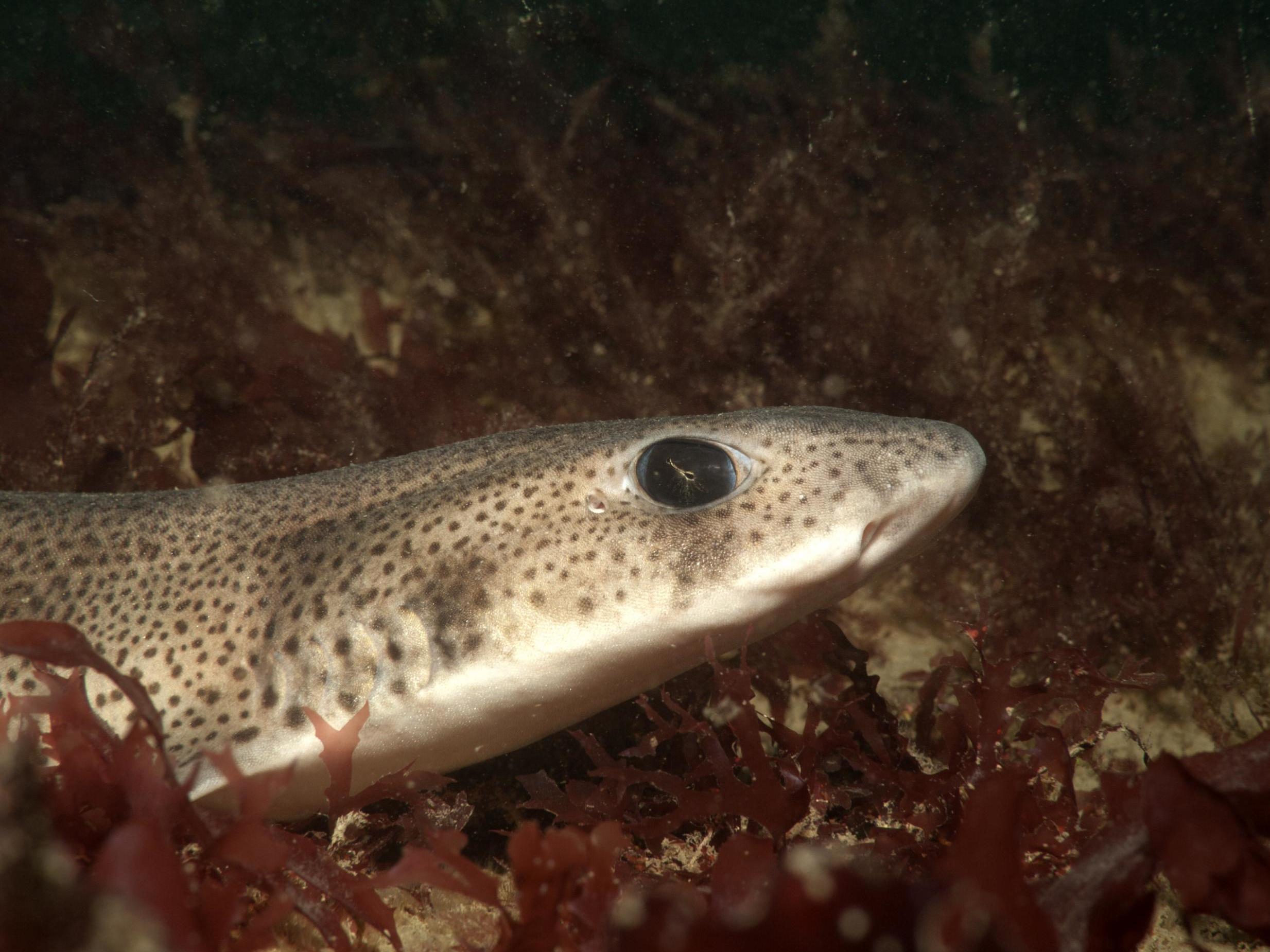Microplastics and synthetic fibres found in UK shark species, say scientists in warning over worsening marine pollution
Study reveals ‘pervasive nature of plastic pollution’

Your support helps us to tell the story
From reproductive rights to climate change to Big Tech, The Independent is on the ground when the story is developing. Whether it's investigating the financials of Elon Musk's pro-Trump PAC or producing our latest documentary, 'The A Word', which shines a light on the American women fighting for reproductive rights, we know how important it is to parse out the facts from the messaging.
At such a critical moment in US history, we need reporters on the ground. Your donation allows us to keep sending journalists to speak to both sides of the story.
The Independent is trusted by Americans across the entire political spectrum. And unlike many other quality news outlets, we choose not to lock Americans out of our reporting and analysis with paywalls. We believe quality journalism should be available to everyone, paid for by those who can afford it.
Your support makes all the difference.The precise health impact of plastics in the marine food chain remains uncertain, but one thing is clear: the problem is pervasive.
From the creatures dwelling at the deepest depths, to the shellfish growing in shallow waters, plastic contamination is ubiquitous.
Scientists at the University of Exeter have now found microplastics in the guts of sharks which live near the seabed off UK coasts.
The research team, which also included scientists from Greenpeace Research Laboratories, examined the stomachs and digestive tracts of four species of “demersal” sharks - which means they live and feed on or near the seabed.
These included the small-spotted catshark, starry smooth-hound, spiny dogfish and bull huss.
Of the 46 individual sharks examined, 67 per cent contained microplastics and other man-made fibres.
A total of 379 particles were found and though the scientists said the impact on the sharks’ health is unknown, it highlights the “pervasive nature of plastic pollution”.
“Our study presents the first evidence of microplastics and anthropogenic fibre contaminants in a range of native UK demersal shark species,” said lead author Kristian Parton, of the Centre for Ecology and Conservation at Exeter's Penryn Campus in Cornwall.
Speaking about the possible sources of the particles, he added: “We were surprised to find not only microplastics but also particles such as synthetic cellulose, which is most commonly found in textiles (including disposable hygiene items like facemasks) and clothing.
“When clothes are washed, or items are discarded as litter, tiny fibres are released and these often flow into water sources and out to sea. Once in the sea, microfibres can either float or sink to the bottom, which is where these sharks live.
“The fibres could then be ingested via the sharks' food, which is mostly crustaceans, or directly through the sediment on the seabed.”
He also warned about the prevalence of plastics due to pollution by the fishing industry.
“In terms of the other types of microplastics we found, many of these may have come from fishing lines or nets.“
The researchers said though the study was based on a modest sample size, the findings suggest larger sharks contained more particles. No differences were found based on sex or species.
The study was conducted in Cornwall, UK, using sharks caught as “bycatch” (by accident) in a demersal hake fishery, fishing in and around the North-East Atlantic and Celtic Sea.
Study co-author Professor Tamara Galloway, of Exeter's Global Systems Institute, said: “We were not expecting to find microfibres from textiles in so many of our native shark species. Our study highlights how important it is to think before we throw things away.”
Dr Laura Foster, Head of Clean Seas at the Marine Conservation Society, added: “The new research into these iconic shark species around the UK shows high levels of microplastic ingestion, with 95 per cent of the contaminants found being fibrous.”
According to the Centre for Biological Diversity there are now 15 - 51 trillion pieces of plastic in the world’s oceans.
“Not one square mile of surface ocean anywhere on earth is free of plastic pollution. The problem is growing into a crisis,” the organisation said.
The study “Investigating the presence of microplastics in demersal sharks of the northeast Atlantic” is published in the journal Scientific Reports.
Join our commenting forum
Join thought-provoking conversations, follow other Independent readers and see their replies
Comments